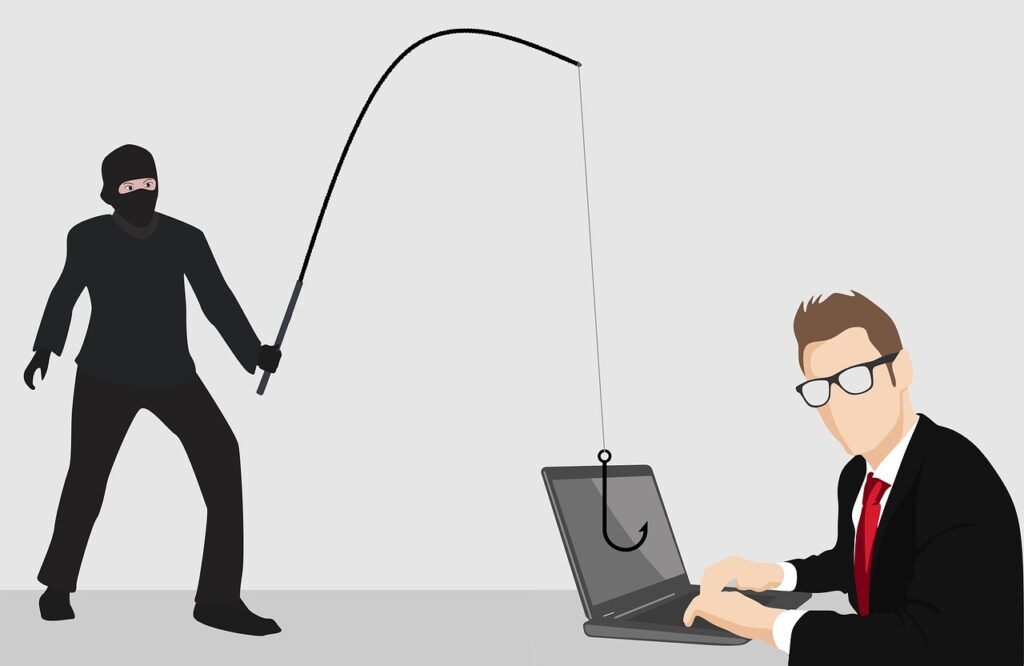
Preventing Fraud and Scams Guide
Preventing Fraud & Scams
As technology has developed and evolved the ways in which scammers try to target people has developed with it. From fake websites to text messages that appear to be from a legitimate source, scammers will try a variety of ways to get personal information from you, in order to take money from your accounts, use the details you share to pretend to be you, or to sell on. As well as use of technology, we also see scammers trying to manipulate or exploit situations to build trust or create panic, to try to get people to divulge information over the phone, and sometimes even face to face.
What to look out for
- Pay close attention to how you’ve been addressed in the email. Scams will often not get your name or title quite right, or may not address you personally at all.
- Where the email is coming from. At first glance, the name of the sender might look like a company you recognise, but double check the email address it’s been sent from. Scam messages won’t be able to use real domains (like ‘info@companyname.com’) and instead will often use misspelled or random email addresses. Make sure you check the sender is who you think it is – even if it joins an existing message thread you know to be authentic. Don’t be afraid to double-check and call the company directly.
- Don’t click on a link if you think it’s suspicious. If the email talks about a problem with an account, go to the company or organisation website directly and log into your account to check. Don’t rely on the link provided if you’re suspicious.
- Secure websites. If you’re making an online purchase, check that the website is a secure one with the padlock icon in the web address bar or https:// in the address bar. These aren’t always guarantees, but are a good starting point
- Pop ups. Messages online asking you to give out personal information unprompted can sometimes come up, so the best thing to do is close the window and not input any personal information. You can also activate ‘pop-up blockers’ on your web browser to help with this, although this can sometimes prevent certain applications from working
Online Scams through Emails and Websites
There are many different types of online scams such as bogus ‘free trial’ offers, bogus emails, counterfeit goods. Below are some of the most common.
Copycat Government Websites
Some scams involve websites designed to look like official government websites such as HMRC.
They charge you a fee to process or renew official documents like passports or visas, which you can do yourself for free or cheaper.
Sometimes a fee is charged but the application is not processed at all.
Dating and romance scams
Scammers use dating websites, social networks and chat rooms to get personal details or money from people. Romance scammers don’t prey on a specific gender, sexuality, race or age.
What you should do
When online dating, start off with a reputable website. Look out for someone asking lots of questions but not giving any detail about themselves. Don’t ever hand over any money or send them valuable goods and never let anyone you don’t know or trust transfer money into your bank account.
‘John’ from Northern Ireland was a victim of a romance scam. Hear John’s story.
Holiday frauds
Scammers target online holiday booking and accommodation sites to scam unsuspecting customers into paying for accommodation that is not available or doesn’t exist.
Often the victim only becomes aware they have been scammed when they arrive at their accommodation or destination and find no booking has been made.
Mandate fraud
This happens where two people are in email correspondence and a scammer hacks an account, creates a very similar duplicate and inserts bank account details and asks for payment, resulting in the scammer getting the money.
Pharming
Pharming is when hackers redirect the traffic from a genuine website to another, such as a fake ecommerce or banking site.
This is a difficult scam to protect yourself from as although you’ve entered the right address to bring you to a particular site, you’re still sent to a fake one to try to get your personal information.
Phishing emails
A common trick scammers use is to send you a fake email pretending to be from your bank or another organisation you trust like HMRC or PayPal.
This email will ask you to visit a website and log in with your account details. The site looks just like your bank’s website, but is really a fake site set up by criminals to get your details.
You can find out more information about online scams at the link below.
Read some of the scams that have been reported in Northern Ireland at the link below. New scam updates are posted regularly.


